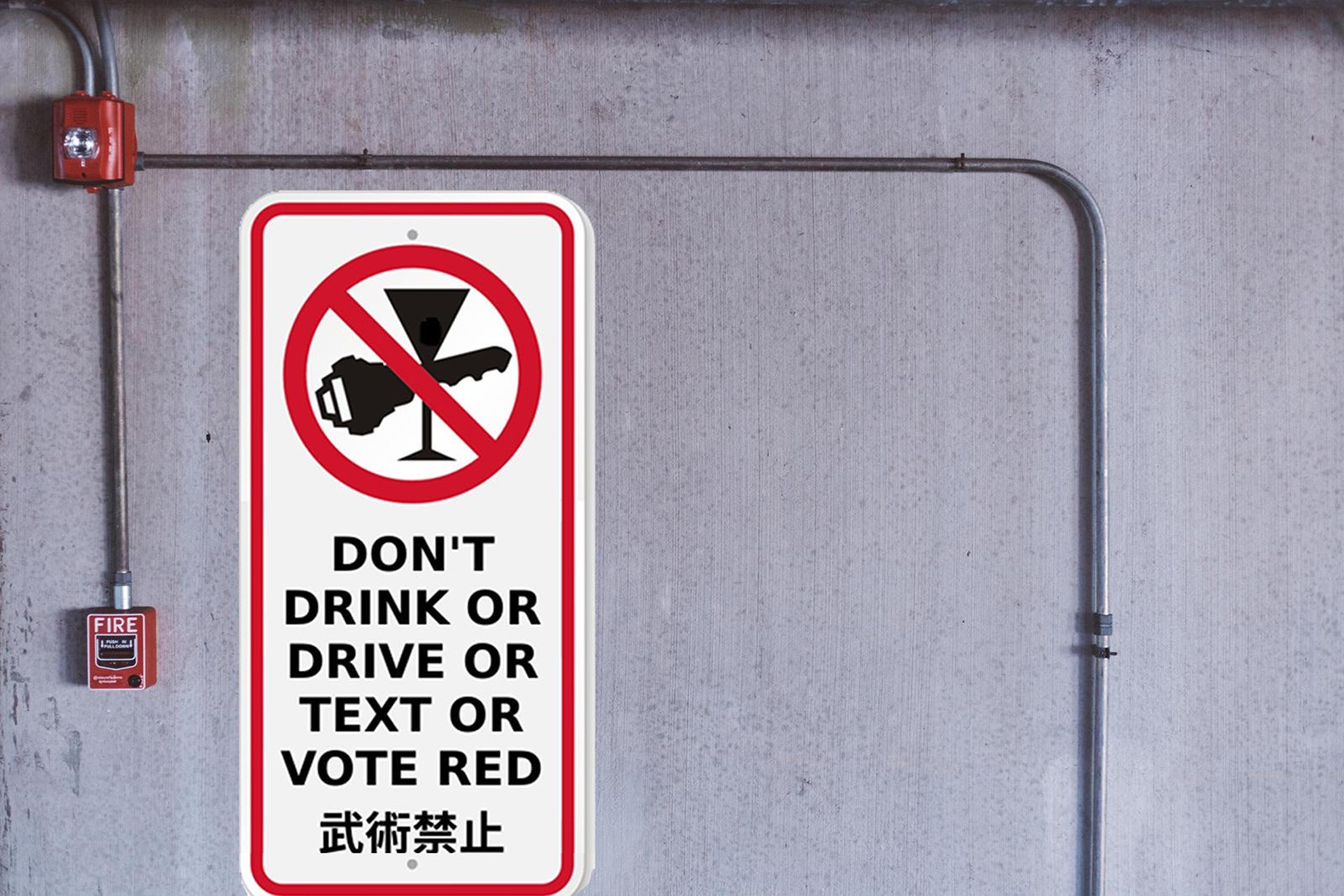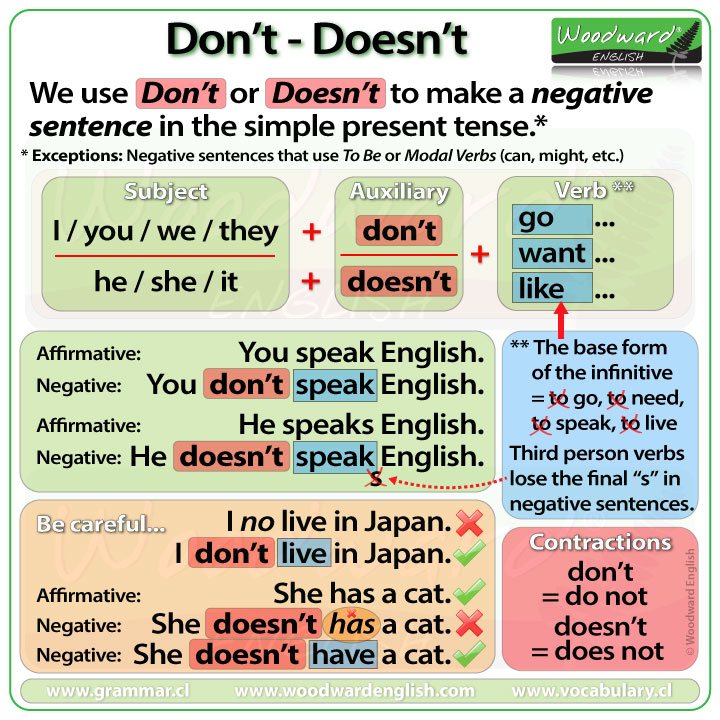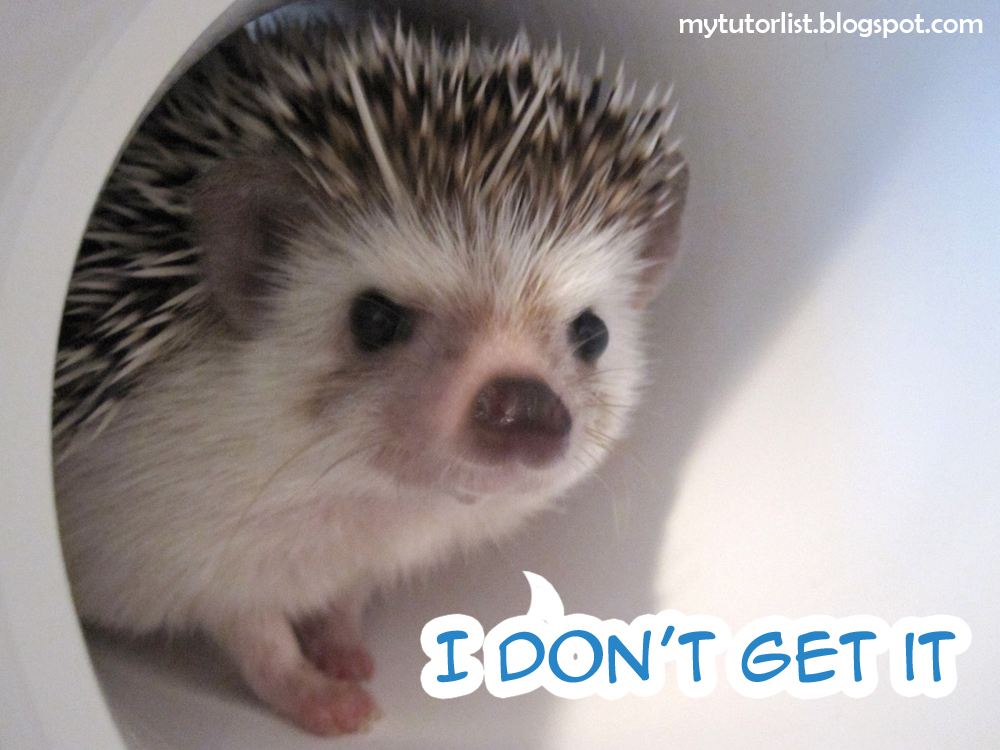
Dodoesdon't doesn't Interactive worksheet Simple present tense
DO you know how to use "do" & "does" correctly in English questions and negative sentences? Or DOES it make you confused? Many, many English learners get int.

When to use DON'T and DOESN'T 🤔 Easy Explanation YouTube
Primary Grammar: Don't Doesn't. Primary Grammar worksheets focusing on the topic of 'don't' and 'doesn't'. Designed for young learners, students will complete basic exercises introducing them to the concept. We use 'do not' and 'does not' when asking a question in a negative manner. We use 'do not' when the subject.

Pin on Tenses
The world's leading online dictionary: English definitions, synonyms, word origins, example sentences, word games, and more. A trusted authority for 25+ years!

Don't Doesn't Grammar Verb Conjugation English Teacher Etsy
You will see that we add don't between the subject and the verb. We use Don't when the subject is I, you, we or they. Affirmative: He speaks Spanish. Negative: He doesn't speak Spanish. When the subject is he, she or it, we add doesn't between the subject and the verb to make a negative sentence. Notice that the letter S at the end of the verb.

I don’t know what to say sadcringe
Answer. The words don't and doesn't are contractions of do not and does not. The verb do changes to does when the subject is third person singular. In all other cases it is do. This is shown in the chart below. With a third person singular subject, the verb do becomes does: Since doctors is third person plural, like they, the correct choice.

Don't Just Don't Free Stock Photo Public Domain Pictures
Don't is a contraction of do not, while doesn't is a contraction of does not, and they both act as auxiliary verbs. In English, don't is used when speaking i.

Negative Sentences 1.9K plays Quizizz
Fill the blank exercise to practice the difference between DO, DOES, DON'T and DOESN'T in English.There are 40 different sentences and questions with one of.

dont&doesnt Learn english, English teaching materials, English vocabulary
Answer. Don't and doesn't are contractions of "do not" and "does not." To figure out when to use each on, you have to know when to use do and does. The verb does is used when its subject is third person singular (he, she, it). Do is used for all other subjects. Below is a chart showing when to use each form: I hope this helps.

Do/don't/does/doesn't worksheet Free ESL printable worksheets made by
Benjamin. Rebecca. Ronnie. 1-Beginner. Basic English Grammar - Do, Does, Did, Don't, Doesn't, Didn't. DO is a very simple verb in English that is used *all the time*. In this simple grammar lesson, I explain how to use it easily and without confusion. You'll learn when to use DO, DOES, DID, DON'T, DOESN'T, and DIDN'T.

Just because others dont like it doesnt mean you dont have to like it
In terms of intended meaning of these two words, there is no difference. The difference in the usage of these words lies in grammar. Often times, 'don't' is used in place of 'doesn't' and that is grammatically incorrect. For example the sentence: She don't know proper English grammar is incorrect. It should read: She doesn't.

DO, DOES, DONT, DOESNT Ingles para criancas, Ensino de inglês, Ensino
Learn how to make negative sentences using Don't, Doesn't and Didn't correctly followed by a simple exercise for you to practice. Also, see the previous vide.

do dont doesnt does
Answer. "He doesn't like ice cream" is correct. When choosing between don't and doesn't it is important to remember that don't is a contraction of do and not, and doesn't is a contraction of does and not. Then the choice between do and does depends on its subject. Use does with third person singular subjects (he, she, it, that, John, Kim, a cat).

Take this hedgehog who doesnt get it! r/firstworldanarchists
You speak English. (+) You don't speak English. (-) We do not say: I no speak English. (NOT correct) We say: I don't speak English. (Correct) We normally use Don't or Doesn't to make a negative sentence in the simple present tense. Let's look at the difference between DON'T and DOESN'T.

DO, DOES, DON'T, DOESN'T English worksheets for kids, Learn english
But in many American dialects, "don't" is used in contexts where "doesn't" is standard: "she don't drive," "it don't make no sense," "the boss don't treat us right.". This is one of those patterns which is likely to make you sound less well educated and less sophisticated than standard English speakers. If you're.

Do, Does, Don't, Doesn't English ESL Worksheets for distance learning
I believe you're looking for number (grammatical number), as in singular vs plural.The verb must agree in number with its subject.. In the third person ("the car"), the form does is singular, and do is plural. (So you'd say "The car doesn't run", using the singular does because car is singular, but "The cars don't run", using the plural do because cars is plural.)

DO DOES, DON'T, DOESN'T worksheet Free ESL printable worksheets made
Use does if the subject is third-person singular (he, she, it, Mike, Amanda, the car). Use do everywhere else i.e. plural nouns and with the pronouns I, we, you and they. Did is used for past tense. Doesn't is the contracted (short) form of does not. Don't is the contracted form of do not. 1. Please ___ play with your food. Does.